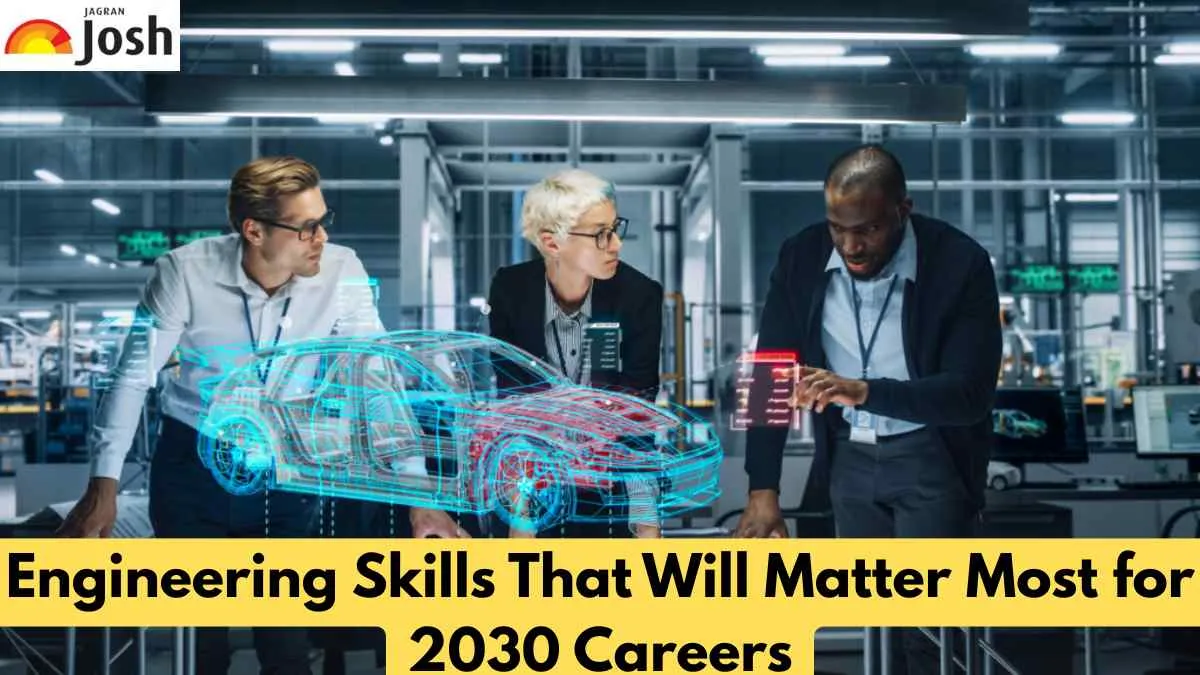Engineering Skills For 2030: A combination of technological know-how and human-centered abilities will be essential for engineers to succeed by 2030. The future of engineering encompasses far more than just traditional technical responsibilities, even though fundamental knowledge in fields like artificial intelligence and quantum computing is still crucial. To create more reliable and effective solutions, engineers of the future will need to be skilled in systems thinking, which involves comprehending how intricate parts work together in bigger systems.
In addition, with the increasing focus on ethical innovation and sustainability, engineers must start to consider the societal and environmental implications of their designs. This entails knowledge and ability to develop technologies that are not only functional, but fair and sustainable, in addition to a high degree of accountability. Interdisciplinary collaboration is also emerging as a marker of distinction. Engineers will have to work with experts from a wide range of fields, including social scientists, corporate leaders, and policymakers, to meet the needs of complex global issues. Moving from specialized silos, to collaborative, integrated teams will be essential in developing comprehensive and impactful solutions. In other words, the engineer of 2030 will be a complex problem-solver who combines a strategic depth of technical knowledge with collaborative and ethical abilities to respond to an ever-changing world.
Also Check:
Commonwealth Scholarships 2025: Eligibility, Benefits and Application Process
Top US MBA Colleges Offering Highest Consulting Salaries in 2025
Oxford Scholarship 2026 Open for International Students: Eligibility, Benefits & Application Details
Top 10 Best Government Engineering Colleges in India 2025: NIRF Ranking, Courses & Fees
Chevening Scholarship 2026: Eligibility, Benefits, Application Process & Important Details
List Of Engineering Skills To Succeed As An Engineer In 2030
The most important engineering skills for 2030 will be a blend of technical know-how and human-centered abilities. Demand will move toward skills that computers cannot duplicate as mundane tasks are replaced by AI and automation.
Core Technical Skills

- AI and Machine Learning: Automation, AI, and machine learning are now required knowledge. In order to solve complicated issues and maximize solutions in a variety of industries, including manufacturing and healthcare, engineers will need to understand how to apply AI. Data analysis, algorithm building, and "prompt engineering"—the capacity to create useful inputs for AI systems—are among these competencies.
- Green technology: Knowledge of sustainable design and green technology is essential given that climate change is a significant worldwide concern. This entails being aware of circular economy concepts, renewable energy systems, and creating eco-friendly solutions.
- Systems Thinking: Engineers need to comprehend how various parts work together to form a bigger system. Designing solid, long-lasting, and efficient solutions for challenging tasks requires this all-encompassing approach.
- Digital and Data Skills: As industries become more digitally integrated, a solid foundation in digital technologies, such as data analysis, cloud computing, and cybersecurity, will be crucial.
Human-Centered Skills

- Ethical Innovation: Engineers will play a key role in creating technologies that significantly affect society. A solid ethical framework is therefore essential. To guarantee that their solutions are fair and advantageous to everyone, they must be empathetic designers who take into account the social and environmental effects of their work.
- Interdisciplinary Collaboration: No single field will be able to address the most complicated issues of the future. Effective collaboration with experts from a variety of disciplines, including social scientists, designers, corporate executives, and legislators, will be necessary for engineers.
- Adaptability and Lifelong Learning: Due to the rapid advancement of technology, a large percentage of an engineer's current skill set will be rendered outdated within the next several years. It is crucial to be able to learn new things constantly, improve your skills, and adjust to new methods and technologies.
- Communication: Effectively communicating complex concepts to both technical and non-technical stakeholders and working in interdisciplinary teams require strong communication abilities. This involves the capacity to explain, record, and convey the significance and worth of a project.
Engineering Skills For 2030: Know About The Syllabus
To better organize the information provided about the engineering skills journey, here is a table summarizing the key focus areas for each academic year and the overarching outcomes. This format highlights the progressive nature of the curriculum and the skills students are expected to acquire at each stage.
| Academic Year | Key Skills Focus |
| Year 1 | Systems thinking, ethics, abstraction |
| Year 2 | Communication, documentation, teamwork |
| Year 3 | Agile project management, CI/CD, problem-solving |
| Year 4 | Leadership, mentorship, cross-sector specialization |
By Graduation
Students will be prepared for multiple career paths, including industry, research, entrepreneurship, or public service. They will have a portfolio of real-world projects, peer feedback, and leadership experience that demonstrates their skills journey. The emphasis on a research-first mindset ensures graduates are equipped to handle the unpredictable challenges of the AI-driven future by asking new questions, running experiments, and adapting quickly to uncertainty. This approach values curiosity and iterative learning, which are critical for success in a rapidly evolving technological landscape.
Also Read:
Top IIT Colleges That Offer Data Science Courses to Learn Online in 2025
Best Free AI Courses for Beginners in 2025
Best Pharmacy Colleges in India 2025 After 12th Offering High Job Placement
To stay updated on current trends, join the Jagran Josh Telegram Community!
